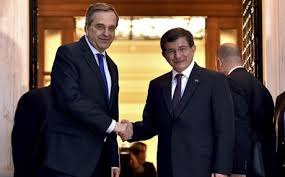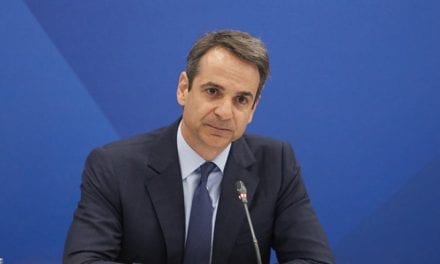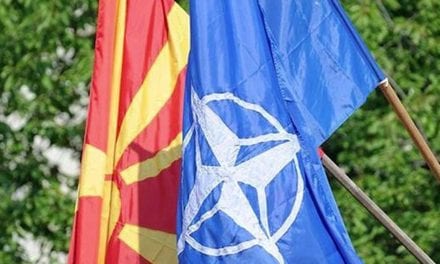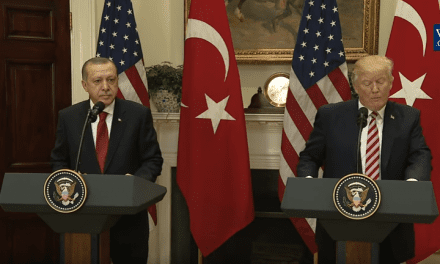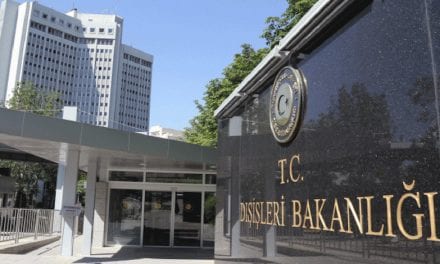The 3rd Turkey-Greece High-Level Cooperation Council, held during Prime Minister Ahmet Davutoğlu's visit to Athens on Dec. 5-6, focused on trade relations between Turkey and Greece and set aside political disagreements.
Speaking to Sunday's Zaman, Tevfik Bilgen, the head of the Turkish-Greek Business Council and the head of the Turkish business delegation accompanying Davutoğlu on his visit, said that the meeting between Davutoğlu and his Greek counterpart, Antonis Samaras, had enabled Turkish and Greek businessmen to build new trade partnerships.
“In a business forum held as part of Davutoğlu's visit to Greece, some 200 Turkish businessmen met with about 100 Greek businessmen. More than 500 bilateral meetings were held, and in that sense the meeting was very successful in helping the two countries discover their trade potential,” Bilgen said.
In a joint declaration issued by the two countries after the council's meeting, the prime ministers highlighted the role of mutual trust and friendly relations in economic development, peace, stability and prosperity in the region. Trade, energy and tourism were designated as strategic for both countries' interests.
Stressing that there is nothing stopping Turks and Greeks from developing their relations, Davutoğlu said, “It is very important that hearts and minds are meeting, [although] of course there are differences between neighbors." For his part, Samaras expressed his hope for a resumption of the negotiations in Cyprus but said that he understood the reasons behind Greek Cyprus' decision to halt the talks. Samaras also said Greece will continue its support for Turkey's accession to the EU.
Cyprus was divided into a Turkish north and Greek south in 1974 after Turkey intervened militarily following a coup attempt aiming to unite the island with Greece. The Turkish Republic of Northern Cyprus (KKTC) in the north of the island is recognized only by Turkey. Turkey does not recognize the Greek Cypriot administration in the south, but the international community considers the Greek Cypriots the legitimate representatives of the entire island.
The two countries also stressed the importance of connecting the Trans Adriatic Pipeline (TAP) and the Trans Anatolian Natural Gas Pipeline Project (TANAP), saying that a connection of the two pipelines would constitute the most cost-effective gas route from the Caspian Sea to Western Europe.
“It is useful for Turkey to belong to the European family, fulfilling, of course, the European prerequisites and obligations,” Samaras said.
Trade relations between Greece and Turkey grew after Marmara earthquake
Bilgen also said that the earthquake that occurred in 1999 in the Marmara region of Turkey was a milestone for both nations to set aside their grievances. The businessman added that especially on the part of Greek citizens there was prejudice against Turkey, which is seen by Greeks as a potential enemy due to the confrontation of the two countries in the past over the status of islands in the Aegean Sea and Cyprus.
“Greeks came to the aid of victims of the earthquake in Turkey and started to acknowledge that during hard times, neighbors need each other. People in Greece waited in queues in hospitals to donate blood to the victims of the earthquake. The solidarity Greeks showed with Turks paved the way for both nations to cast off their prejudices,” Bilgen said.
The trade volume between Turkey and Greece reached $5.6 billion in 2013, up from $800 million in 2003. A total of 591 Greek firms operate in Turkey, with total investments worth $6.7 billion.
Trade as tool to overcome disagreements
Professor Mehmet Hasgüler from Çanakkale Onsekiz Mart University told Sunday's Zaman that political disagreements can be solved by strong economic and cultural relations. He said that the Cyprus issue can be solved by increasing trade and cultural relations between Turks and Greeks, rather than through diplomatic channels.
“Trade relations ineluctably draw countries close to each other. When you look at Turkey's relations with Greek Cyprus, there is lack of effort to foster trade. If Turkish small and medium-sized enterprises — which are also known as ‘Anatolian Tigers' — appear in Greek Cyprus, the talks over Cyprus will speed up and eventually the issue will be resolved,” Hasgüler said.
Hasgüler also stressed the importance of cooperation in education. He advised institutions such as the Yunus Emre cultural centers and the Turkish Academy of Sciences to teach and promote Turkish culture, history, language and literature to students from Greek Cyprus.
Today Zaman

